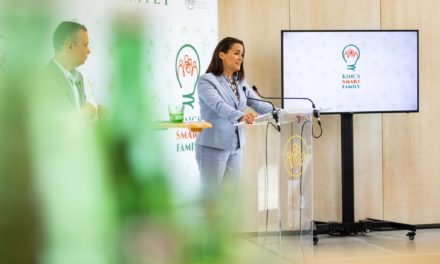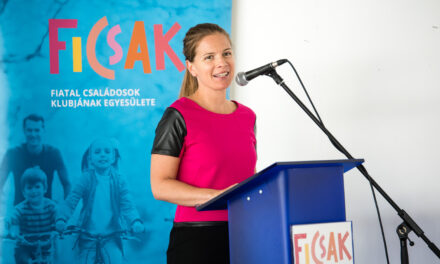The most important conditions for having a child are financial security, a secure job, and adequate housing, Tünde Fűresz, head of the Mária Kopp Institute for Population and Families (KINCS), told Vasárnap.
An analysis by the German Max Planck Institute was published not long ago, which shows that compared to the number of births between 2016 and 2019, there was an increase in only one country during the pandemic: Hungary. We are often dissatisfied that only the number of births increases slightly, but now it seems that even with this small increase, we are surpassing the European results.
Of course, we were worried that the negative economic effects caused by the epidemic would reduce the desire to have children, but that was not the case. The compensation provided by the government and the family support system, which has not changed - and has been expanding over the past year - helped ensure the financial conditions for having children.
The vast majority of Hungarians imagine their lives in their own home, which is supported by the extensive home creation program. At the same time, there are negative international effects, mainly affecting the price of construction materials, which really affect Hungary as well. These can cause difficulties in creating a home. We can remember that in the summer the government tried to counterbalance these with quick measures. It has introduced an export ban on certain building materials, and currently wants to freeze the price of gasoline in order to moderate inflation.
In my view, these measures and the subsidies granted to child entrepreneurs significantly offset these difficulties. Let's not forget that both young people, family members and pensioners can get significant extra income from the beginning of next year. Those under the age of 25 are exempted from social security, families receive a social security refund, and pensioners receive their 13th month's pension back.
Along with the pension compensation, the pension increase and the 13th month pension, the elderly also receive a 14th month pension. And family members have never had as large a tax refund as they can expect at the beginning of next year. The 15 percent personal income tax refund will mean an additional income that can offset the negative external effects associated with the deterioration of money, in the same way as the tax exemption for young people under 25 years of age.
These are very important and gradually improve the demographic indicators, but having a child requires a stable relationship first. said the specialist. By definition, the government is less able to help with this, although there are excellent measures to encourage marriages, such as the baby support. After that, the most important factors for having children are financial security, a secure job, and adequate housing conditions.

epitkezes.hu/illustració
Here, many obstacles towering in front of young people have already been demolished. Today, the family support system is very broad, and those who have children in Hungary receive discounts that are not available anywhere else in the world. The family policy launched in 2010 is a bit like a leafy tree. In the past year, it has become more and more widespread, its branches have become thicker and thicker.
Thanks to the visible demographic results, we now have more and more allies. The Hungarian family support system is also praised on the international stage, and more and more people see it as a model to be followed. Many people abroad would be happy if their governments also pursued a family and population policy like the Hungarian one, another question is that it is not possible to talk about this in their own country at all, since marriage and family in the traditional sense are slowly no longer part of the " politically correct" concepts.
Thank God, Hungary has not yet been affected by these phenomena. Instead of gender ideology, we focus on the family.
Our goal is for this family-focused, family mainstreaming approach to appear in as many areas of life as possible.
Today, we see many practical implementations of this, even in the world of multinational companies operating in Hungary. In many respects, Hungary has become an exporter of family-friendly know-how. In the coming years, work must also be done to ensure that families feel that they are at the center.
Source, image and full article: vasarnap.hu












